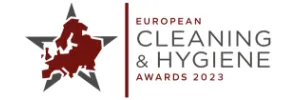News & Insights
Read the latest news from us and our clients across the globe

Posted on 11 August 2014 by adtrak.admin
Stronger policy needed to accelerate the transition to a circular economy and address materials security
Ray Georgeson, Chief Executive of the Resource Association, reviews two new resource reports presented at the annual Resource Association Conference
There are growing calls for change in the way that the UK manages its resources, with a clear consensus that materials will become more scarce. With increasing pressure on resources and the volatility of commodity prices making a significant impact, support is growing for a more efficient ‘circular economy’ whereby materials that are still too commonly treated as waste are used for as long as possible, then re-used or restored.
Resources, jobs, growth: building a shared agenda for the circular economy was the theme of our second Resource Association Conference, organised by the Environment Media Group, which took place on 9th July 2014.
The importance of recycling, reprocessing, reusing, repairing and remanufacturing, has attracted the attention of UK policy influencers and the conference opened with a new report from progressive mainstream think-tank, The Institute of Public Policy Research (IPPR), outlining several key policy changes needed to address resource challenges.
The report, The Wasteline: Redefining ‘waste’ and improving resource management policy’ identified three strategic goals that resource policy must support, and set out recommendations to advance the achievement of those goals:
- a better understanding of how the UK’s resources are used;
- a cultural and behavioural shift in favour of reusing materials; and
- an end to inefficient and polluting treatment of reusable and recyclable (or ‘secondary’) materials.
In his keynote address, Mark Rowney, Research Fellow at the IPPR and author of the report, emphasised the need for consumer participation if a circular economy is to progress, which must be facilitated by government. He acknowledged that there has been a cultural change with huge increases in recycling over the last 15 years, but targets have been scrapped and momentum has stalled in recently.
On the positive side, ‘waste’ sent to landfill fell by 61 per cent in England between 2000/01 and 2012/13. Recycling of municipal ‘waste’ in England increased by 306 per cent over the same period. Scotland and Wales have seen similar success stories. This suggests we can be optimistic that further ambition is possible and achievable.
However the report also highlights that currently, ‘waste’ policy in England is seen by many to have stalled, with the abolition of the landfill tax escalator as one illustration. All English targets have been abolished and work on English ‘waste’ policy relating to construction, demolition, commercial and industrial ‘waste’ has stopped, as has work on policy relating to energy from ‘waste’ in England.
BIS and Defra released a Resource Security Action Plan and a review of waste strategy but both lack ambition, seeking only to meet minimum EU landfill targets and leaving delivery over reliant on voluntary initiatives. On materials security, countries such as the USA, China, Japan and Germany have raced ahead with clear strategic interventions to secure key materials supplies and develop advanced materials recovery industries.
Mark also questioned whether the waste hierarchy is still fit for purpose as, if ‘waste’ is a resource, why should disposal even be an option?
The report made five major policy recommendations:
1) Establishment of an Office for Resource Management (ORM)
IPPR’s first recommendation is the establishment of this office within Defra. This should be staffed by secondees from industry and other government departments. It should be tasked with increasing our understanding of how resources are used in the UK and facilitating a cultural change regarding their use and reuse.
2) Scrap ‘best before’ food labelling
Secondly, initial steps to encourage behaviour change should begin with our food ‘waste’. Regulation on food and how it is labelled should be eased. For example, European law requires most foods to have an indication of how long it will be of optimal quality stamped on the label: the ‘best before’ date. Too often this is mistaken as an indication that food is unfit for consumption, leading to unnecessary wastage.
The requirement for foods to be labelled ‘best before’ should be scrapped, meaning that the only mandated label would be ‘use by’, necessary for food safety reasons. Meanwhile, following a thorough cost/benefit analysis, Defra should require English food businesses to take all reasonable steps to separate food from other discarded materials and ban the use of macerators to dispose food in public sewers. What is ‘reasonable’ would be determined by the specific nature of the food business. The key recommendation is for Defra and the ORM to lobby the EC to amend Directive 2000/EC/13 to revoke the requirement for foods to be labelled ‘best before’.
3) Consult on encouraging food businesses to separate discarded food from other materials
To increase the visibility of ‘waste’ production (which discourages its generation) and ease ‘waste’ treatment for local authorities, both public and private sector organisations should be required to take all reasonable steps to present discarded dry recyclable materials such as metal, glass, plastic, paper and card for collection, separately from each other. Defra will need to conduct a cost/benefit analysis of this policy prior to its implementation and the ‘reasonableness’ of steps will be determined by the nature of a business. The report focused more on the role of food waste and concluded that the Scottish model had merit. Their key recommendation was therefore that Defra should launch a formal consultation to explore options for ensuring that English businesses that sell, distribute, prepare or produce food to take all reasonable steps to separate discarded food from other secondary materials.
4) Consider greater financial penalties for landfill disposal when the economic recovery is secured
Resource industry representatives interviewed as part of the research stated that the landfill tax escalator was abolished to boost business but complained that business no longer had long term certainty of policy. HM Treasury says it needs time to consult on better enforcement of the tax. However, there remains a need to discourage inefficient and polluting disposal of valuable secondary materials. Concerns over enforcement, whilst important, should not distract from this policy goal. With recycling rates slowing and the economy recovering from the longest recession in the UK’s history, that policy certainty should be reinstated. HM Treasury should consider the reintroduction of the landfill tax escalator in the next parliament once a balanced recovery has been established.
5) Reducing incineration
Finally, policy should begin to view some incineration as analogous to landfill. Fears that recycling could not be encouraged have proven unfounded. Therefore, HM Treasury should launch a consultation on ways to reduce incineration in the most effective way, which causes the lowest burden on business and local authorities. The terms of reference should include an examination of the costs and benefits of introducing an incineration tax, introducing regulations to ban specific materials going to incineration, and doing nothing.
Safeguarding materials
In response to these findings, Susanne Baker from EEF, the manufacturers’ organisation, warned that government must act over escalating risks to the UK’s supply of essential materials. In a new report, Materials for Manufacturing: Safeguarding Supply, also presented at the conference, the EEF is urging the government to:
- Establish an Office of Resource Management to co-ordinate the government’s approach
- Improve data on the UK’s exposure to resource risk
- Provide stronger incentives for resource efficiency
- Reframe the UK’s waste strategy to extract more value from what we discard.
Both the IPPR and EEF stressed that sound data on individual waste materials being produced, and what is happening to it, is required to make a clear case for policy to happen in this area. This was compared, as an example, to energy policy, where the Dukes quarterly summary provides clear energy data to highlight its impact on financial markets.
The Resource Association welcomed both reports and emphasised that an Office of Resource Management within government was gaining ground with industry as a concept. Noting that there are differences of view on location, we believe that regardless of location what is most important can be summarised by the need for 3 C’s:
- Clout – to make change happen
- Coordinating role across government departments
- Cabinet Minister responsibility needed to drive policy in this area.
Perhaps much of the growing industry call for an ORM to be housed in BIS comes from frustration at the retrograde movement of policy in Defra and the lack of certainty this is creating, but we note with interest the considered view of IPPR, given their position which is much closer to the thinking of mainstream senior politicians of all parties than the resource industry traditionally tends to be.
Now that the notion of the circular economy is taking hold, there is real potential for resources once seen as problematic wastes, to fuel significant economic, environmental and social progress. We were delighted that Defra minister, Dan Rogerson clearly articulated this in his keynote speech at the conference, as well as robustly defending Defra’s interests as the lead Government department on waste and resources, taking questions from delegates on this and other issues such as the forthcoming EU policy package on resources and potential new targets for recycling.
The launch of these two new important industry papers attached to the conference created an unparalleled opportunity to shape and discuss future policy potential in this area, with organisations very firmly in the mainstream of industry representation and policy making. To access the two new reports visit:
EEF: http://www.eef.org.uk/publications/reports/Materials-for-Manufacturing-safeguarding-supply.htm
Published in CIWM – August 2014
Experts in Public Relations Services & Communications Management
Our ServicesGenuine industry specialists in cleaning and hygiene, environmental and recycling, and facilities management
Our Sectors












